Testimonials
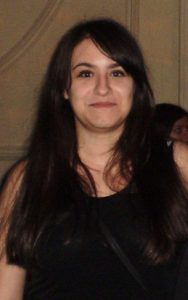 |
Veronica Colibă Absolvent Master „Ingénierie des Structures”- 2015 Doctor inginer, UTCB, 2019
|
Civil engineering is one of the oldest occupations in the world, that’s why choosing to study it was very easy. A career in civil engineering offers you many opportunities for travel, for gathering knowledge in different fields, but also for having a lot of personal experiences.
The fact that all of the courses were taught in French offered me the possibility to improve my knowledge of French language and to be in contact with various cultural backgrounds. Another advantage for taking the classes in French was the fact that I had the opportunity to elaborate my master’s thesis at a research laboratory from a prestigious university in France.
I think that the experience of studying a technical field in a foreign language is unique and thus I advise anyone to make the same choice.
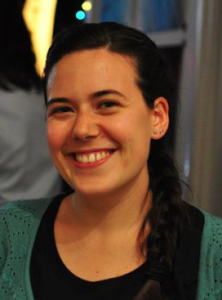 |
Ioana Teodorescu Doctor inginer, UTCB, 2018 |
Now, after six years (4 years of license and 2 years of master) I am sure that I took the best decision to attend the classes of F.I.L.S. and most of all in the French language. Even if in the beginning it has been difficult for me to accommodate with the new terms and with the fact that all the classes were taught in French, now I cannot imagine school hours otherwise.
Although our year was a small one, in comparison with the Romanian department, I felt very good in my collective; we are all friends and this helped us to work together on projects or to learn for exams and I am certain that we will dearly meet over the years. Being a small group, we were close to our professors too, to whom we thank because they shared their knowledge with us.
Even now after six years of study, projects, exams and presentations, I do not regret a single moment my decision of attending the classes of the Faculty of Engineering in Foreign Languages!
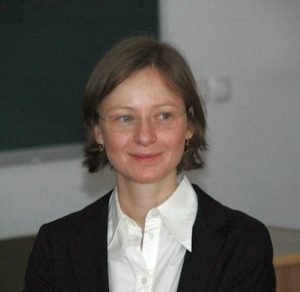 |
Caterina Negulescu Absolvent 2002 Doctor inginer, UTCB, 2010 Ingénieur civil, Unité Risques Sismiques BRGM Bureau de Recherches Géologiques et Minières, France |
When I graduated high school I choose to follow French language courses of Technical University of Civil Engineering Bucharest (UTCB) without knowing extraordinary expectation from this choice I made. FILS French department gave me the opportunity to fulfill my professional profile through Erasmus-Socrates and AUF (Agence Universitaire de la Francophonie) scholarship in countries like France and Belgium. After my graduation I had the opportunity to work together with my professors from UTCB within European project NEMISREF and at National Center for Seismic Risk Reduction, institution which implemented Japan International Cooperation Agencies project in Romania when I had a training program in Japan. After that I choose a position at BRGM (Bureau de Recherches Géologiques et Minières) in Orleans, France. I owe my success to my professional training acquired in faculty and also competence and devotion with which I was guided by my teachers.
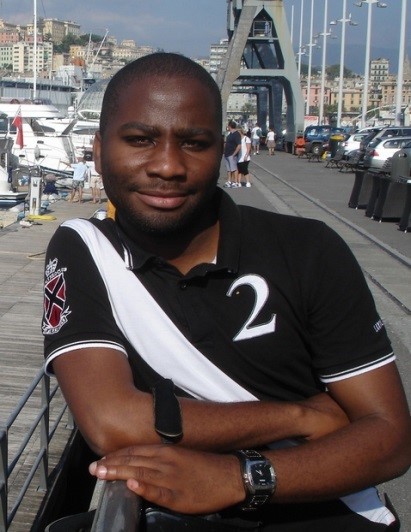 |
Armel Costel EBLOHOUE Graduated in 2009 Ingénieur géotechnicien, Bee Engineering, Paris |
After my baccalaureate in Mathematics and Physical Sciences in Benin, I wanted to study civil engineering. My father, who studied civil engineering in Romania, advised me to choose the Technical University of Civil Engineering Bucharest for its quality and practical formation. The studies at the French section allowed me to learn the Romanian and European building codes, but also to familiarize myself with the French specific features for construction. The university has also numerous partnerships with foreign universities. So, after my Bachelor degree obtained in 2009, I completed my education with a master’s degree in soil mechanics at the National School of Bridges and Roads in Paris. Today I work as a geotechnical engineer for a consulting engineering firm in Paris. I enjoyed the educational approach of my studies in Romania, which allows me today to have a much more practical vision of problems. I liked the overall atmosphere in the university, as well as outside of the university.
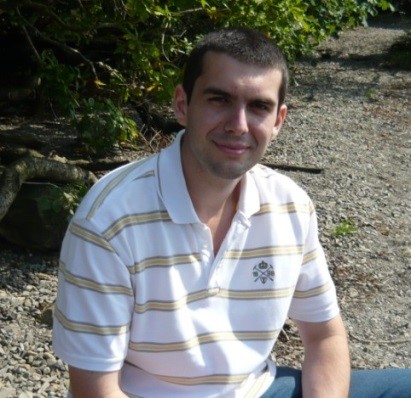 |
Florin Pavel Graduated in 2008 PhD., UTCB, 2012 Lecturer UTCB |
Through my studies done at the English department of FILS, I was fortunate and I also had the chance to acquire knowledge from both the Romanian literature and especially from the foreign one. After graduation, I can say that I’ve left with a solid base of knowledge in many fields which has allowed me, after the completion of the 5 years of study, to follow a Masters in Civil Engineering and after that a PhD at UTCB. The years spent in college helped me to discover a passion that has since become even the topic of my PhD thesis.
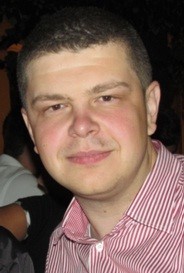 |
Basarab Chesca Graduated in 2003 PhD., UTCB, 2011 Lecturer at Univ. Architecture and Urbanism „Ion Mincu” Bucharest |
FILS gives future engineers the opportunity to learn a range of theoretical concepts taught by professors having an extensive professional experience. The study in a foreign language allows the development of the technical vocabulary necessary when working with international partners. The professor – student relationship is friendly and the series with up to 50 students per year allow for an easy interaction with the teaching staff. I thank to those who took the initiative to establish FILS and to the teaching staff who has contributed to my professional training.
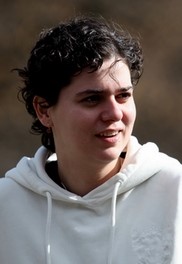 |
Carmen Dragota Graduated in 2003 Senior Structural Engineer WorleyParsons Europe Limited, Great Britain |
To be or not to be an engineer … that is the question. The most important thing when you’re in a position to make a decision is to have as much information about the options as available. In the case of high school graduates, the question is the following: “To be or not to be an engineer?” What does that entail, what should you expect? What would you do, specifically? I am referring not only to the college years, but especially to the years after graduation. After finishing the high school, I chose to attend FILS (in English). Besides the fact that the engineers will always be on demand, the idea of learning in English has attracted me, as well. I do not regret my choice. After graduation, I followed a Masters in Geotechnical Engineering and I worked two years at UTCB in the Department of Mechanics, Statics and Dynamics of Structures. This was followed by a job in an oil and gas international company, where I had the chance to work in Alabama and Princeton. I am currently working as an engineer in London in an Australian engineering company that has offices in several international places. This faculty offers graduates a broad perspective of being up to date with technological development, an easy access to articles and materials from international literature, an easy communication easily with people from different parts of the world and a fit in international labour market. These are some of the advantages of being a FILS graduate. I’d like to point out that those who still follow this path must howeve,r be serious, because in general, technical faculties are not straightforward. There are not hard, if due attention is paid throughout the year. I wish good luck to all those who aspire to a career in building engineering.
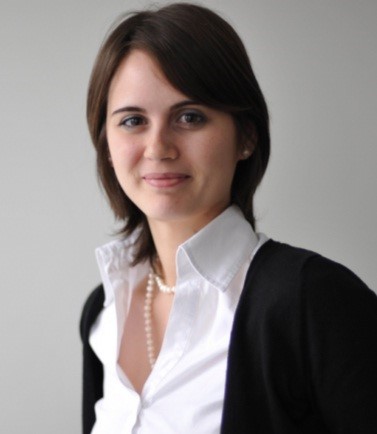 |
Ana Maria CALUGARU GHITA Graduated in 2009 Ingénieur structure SETEC Bâtiment, France |
The choice of your future career is one of the most important decisions you have to make in life. It’s very important to do something you like in order to be good at your job! The choice of attending FILS in French was a very good choice. FILS has given me the technical skills needed to become a good engineer and also a chance to leave for three years through a double diploma agreement with the National School of Bridges and Roads in Paris. This was a perfect opportunity to complete my training both professionally and personally, an opportunity that has opened my professional “gateway” that I was seeking. I am currently working as an engineer in Paris in one of the major French engineering firms. This job allows me to work with famous architectural practices in the world (Frank Gehry, Kengo Kuma, Valode et Pistre, Architecture Studio, etc …) in large-scale international projects, both for the design of new buildings and for rehabilitations(museums, theaters, hospitals, universities, etc), as well. I thank very much to all the professors who have contributed to my professional training and who have guided me on this path and I wish good luck to all those who will choose this exciting field.